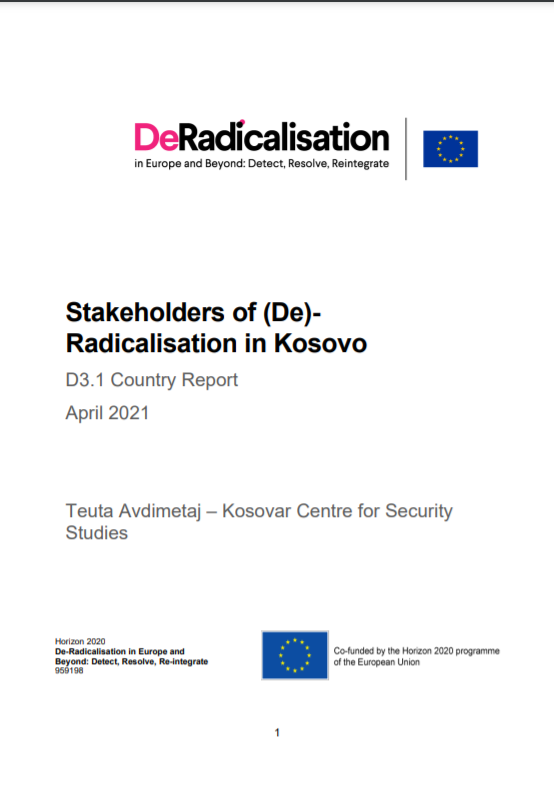15/04/2021

De-Radicalisation in Europe and Beyond: Detect, Resolve, Re-integrate
Horizon 2020, European Union
Teuta Avdimetaj
In building up Kosovo’s context of radicalisation and de-radicalisation, it is considered important to acknowledge the country’s unique situation as a fairly new state, with a recent history that has been marked with various transformative processes, including a transition from war to peace, from authoritarianism to democracy, and the ongoing process of consolidating statehood and international subjectivity. These macro-level developments are relevant in understanding radicalisation and de-radicalisation processes even at the community and individual level since forging a national identity is often tightly linked with the radicalised individuals’ struggle to find belonging, deal with the legacy of conflict, and learn how to manage high expectations in Kosovo’s newly-independent and democratized society.
This research was conducted under the Horizon 2020 project ‘De-Radicalisation in Europe and Beyond: Detect, Resolve, Re-integrate’ (959198).
The sole responsibility of this publication lies with the author. The European Union i s not responsible for any use that may be made of the information contained therein
Any enquiries regarding this publication should be sent to us at: [email protected]
This document is available for download at https://dradproject.com/